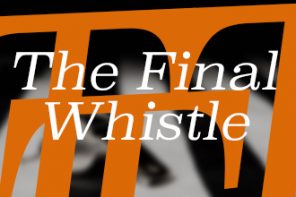Midway through the Euro 2016 qualification process, Northern Ireland have the chance to reach a major tournament for the first time since 1986. Gerry Armstrong, who scored the winning goal against hosts Spain in the 1982 World Cup, knows all about the pride of representing Northern Ireland on the big stage. Dominic Bliss spoke to him.
What would it mean for Northern Ireland to qualify?
Northern Ireland have never qualified for the European Championships. We’ve had a couple of close calls – we lost out on goal difference to West Germany in 1984 and we lost out on our head-to-head record to the Republic of Ireland in 1996. We beat [West] Germany home and away in qualifying for Euro ’84 and I think we’re the only team to have done that in any European Championship or World Cup qualifiers. It still didn’t work out.
How impressed are you by the current Northern Ireland squad, who won their first three games of qualifying and were unlucky to lose to Romania last time out?
At the very outset, Michael O’Neill did say that we have a chance in this group because there is not a Germany, or an Italy, or an England. There is not one of those top five or six teams in there that would really make us worry. Greece were the threat but I was at the Greece game for Sky, when we were brilliant.
I like the way we are playing, I like the way Michael has got us organised. The team is playing some good football at times, looking threatening from set-plays and we’ve got good experience at the back. The two centre-halves have often been Gareth McAuley and Aaron Hughes, because Jonny Evans has been injured for a few of those games, and I have to say that we have played very well, tactically. Even in the defeat against Romania we didn’t concede the goals until late on.
I have to tell you that I haven’t watched Northern Ireland lose this year because I wasn’t able to make it to the Romania game. So I’m hoping that, for the next game against Finland at home, we’ll be firing on all cylinders. It will be a tough game, though, as we’ve always had hard games against them.
The last time I remember playing against Finland was when we had to beat them in Belfast, in qualifying for the 1986 World Cup. We were 1-0 down and I scored the second goal, which was a penalty, as we won 2-1. We had Romania in that group too, although we beat them 3-2 in Belfast and 1-0 in Romania, but there were some similarities between the two groups.
Do the Northern Irish people seem more positive about the team right now?
Yes. Sometimes we can expect too much from the lads. After qualifying for the 1982 and 1986 World Cups, you think you’re going to qualify for the 1990 and 1994 tournaments as well, so there was a bit of disappointment when that didn’t happen.
Now there is a real expectancy among the fans again and you can see some good young players coming through. I’m pleased at the way the squad has been assembled, and I’m pleased with the way Michael has got them playing – with spirit and confidence. He was a good player himself – I was his coach when he was playing for Northern Ireland, under Bryan Hamilton, and he scored goals. Now he has his team playing with the right tactics and a bit of panache.
You have been involved in so many of those qualification campaigns, both as a player and a coach…
Virtually all of them!
So you must know better than anyone how significant qualification for Euro 2016 would be for the Northern Irish football-supporting public.
I love to see us do well because we are such a small nation – 1.8 million people – and we always punch above our weight, we always do. I look at the talent that’s coming out of Northern Ireland, from a golf point of view, from a boxing point of view, from an athletics point of view…there are gold and silver medalists in the Olympics from Northern Ireland all the time and the football has also given people a lift. In the 80s, we were a very good side, and I just hope these lads get to experience the same thing.
What was the secret to success for that 80s side?
The secret is to be a team. We were a proper team, and we worked for each other. It wasn’t about individuals, we didn’t have any outstanding stars as such. We worked really hard for each other and it’s exactly the same at this moment in time. Michael, Jim Magilton and, previously, Billy McKinlay have had a good group of lads who have worked hard for each other and they’ve got the results.
You say there weren’t any stars in the side you played in, but there were plenty of well-known players in the 1982 World Cup squad and plenty of them had a great deal of experience at the highest level. It’s not that they weren’t big names, but they weren’t world-class stars. George Best was a world-class star, but he wasn’t in that squad.
We had Pat Jennings as our goalkeeper and Chris Nicholl as our centre-half – those were the two rocks, a centre-half and a goalkeeper who were really solid. Pat was probably the outstanding player and he was world-class for about four or five years. I don’t think there was a better goalkeeper in the world than Pat.
Martin O’Neill, then, was the midfield player who won European Cups and league titles with Nottingham Forest. You need the right balance, I always said that, and Billy Bingham added a bit of youth to it, in Norman Whiteside and a lot of players who all came of age at the right time – Billy Hamilton, David McCreery, Jimmy Nicholl and myself all came into the squad and came good around the same time.
Sammy McIlroy and Mal Donaghy, as well – they were consummate professionals who would give you 100 per cent, and that’s what you needed. Wee David McCreery covered every blade of grass, on every pitch we played, and he had a role to play that was not as glamorous as those of us playing the attacking roles. Everybody played their part and we had that camaraderie. Northern Irish sides have always had camaraderie and that gets you a long, long way.
The thing we didn’t have a lot of was injuries and we were very hard to beat. Teams used to hate coming to Belfast to play us and that was the key for me. Belfast was a rock and we never got beaten at home.
After qualifying for the 1982 World Cup, you then topped your group in the opening phase of the finals, drawing with Yugoslavia and Honduras, then sensationally beating hosts Spain to clinch qualification. How did you convince yourselves that you could win that famous game in Valencia before kick-off?
We had confidence and belief in ourselves. Martin O’Neill called a meeting the day before, when we were sitting by the pool after we had trained. We sat by the pool for an hour, talking about the game, and Martin basically said, “Look, all the pressure is on Spain”. They’d not performed well, they were at home and there was a lot of expectation on them. I think the pressure was really on them. Martin said, “They’re going to come at us for the first 15 or 20 minutes, we know that, and we’re good at absorbing pressure, taking things on the chin and getting out of it, so we can hit them on the break.”
And that was the plan. We’d absorb the pressure for the first 20-30 minutes, then we’ll create two or three chances, get one of them and beat them 1-0. That was just a general conversation by the pool and there were about seven or eight players involved in it. Players talk. There were people saying, “Tomorrow’s the last game” and we were saying, “Well, is it the last game? If we win the match, we go through.” Basically, we had a lot of belief in ourselves. People apart from ourselves didn’t believe, but we did!
Do you remember what you were thinking as you scored the winner that day?
You don’t think too much, it’s just all pure instincts. Chances come few and far between in international matches – you only get one or two in a game if you’re lucky. That day in Spain, I think we only got two chances in the whole match and fortunately one of them came to me. I just thought, “Keep it low”. That was all I thought. There were two or three bodies in front of me so I thought, “Keep it low” and it went through and it went through at least one, maybe two, players’ legs.
You must have had a few more thoughts after you saw it hit the net, though, right?
There was a silence because there were 55,000 in the stadium and only 500 Northern Ireland fans – and they were at the other end! So, the Spanish fans weren’t cheering and I thought it might have been disallowed. I was looking around and it was only the reaction of Norman Whiteside and Sammy McIlroy, who had their arms up and were coming towards me cheering, that actually made me think, “Hang on, this is going to count!” The referee, for some reason, wasn’t giving us too much at that time and we had to work hard for everything.
Once you were 1-0 ahead, you went down to 10 men when Mal Donaghy was sent off and then you had to grind the win out. How hard was that?
That wasn’t part of the plan! Sometimes that fortifies you, makes you stronger, you know? It was such a poor decision from the South American referee that we were even more determined that we weren’t going to lose it.
Did you ever go back to that stadium?
I did. I went back with Mallorca about a year-and-a-half later and we were 2-1 down and I scored into the same goal, except that one was from outside the penalty area, about 20 yards out. We ended up drawing 2-2.
Are you able to show your face in Valencia anymore?
I wasn’t too popular that day, I can tell you. I had loads of fruit thrown at me as I came off the coach before the game. Funnily enough, I haven’t been back since, but I’ll get back there one day, just to rub their noses in it!
The next phase wasn’t so successful, as a 2-2 draw with Austria and a 4-1 defeat to France spelled the end of Northern Ireland’s run, although you did pop up with the consolation in the France game. Would you say your performance against Spain in 1982 had an influence on your move to Real Mallorca?
Without a shadow of a doubt. That set up a career in Spanish football that has been going for 20 years now. The following year I had Sevilla, Mallorca and a couple of other clubs, as well as a couple of German clubs, show an interest in me, but I was quite happy at Watford. We had just got promotion and we finished runners up in the league, but when Mallorca came over and made me offer, I thought it was an opportunity to try something else abroad and I decided to take the opportunity. I’m glad I did.
You can follow Dominic Bliss on Twitter (@theinsidelefty)






